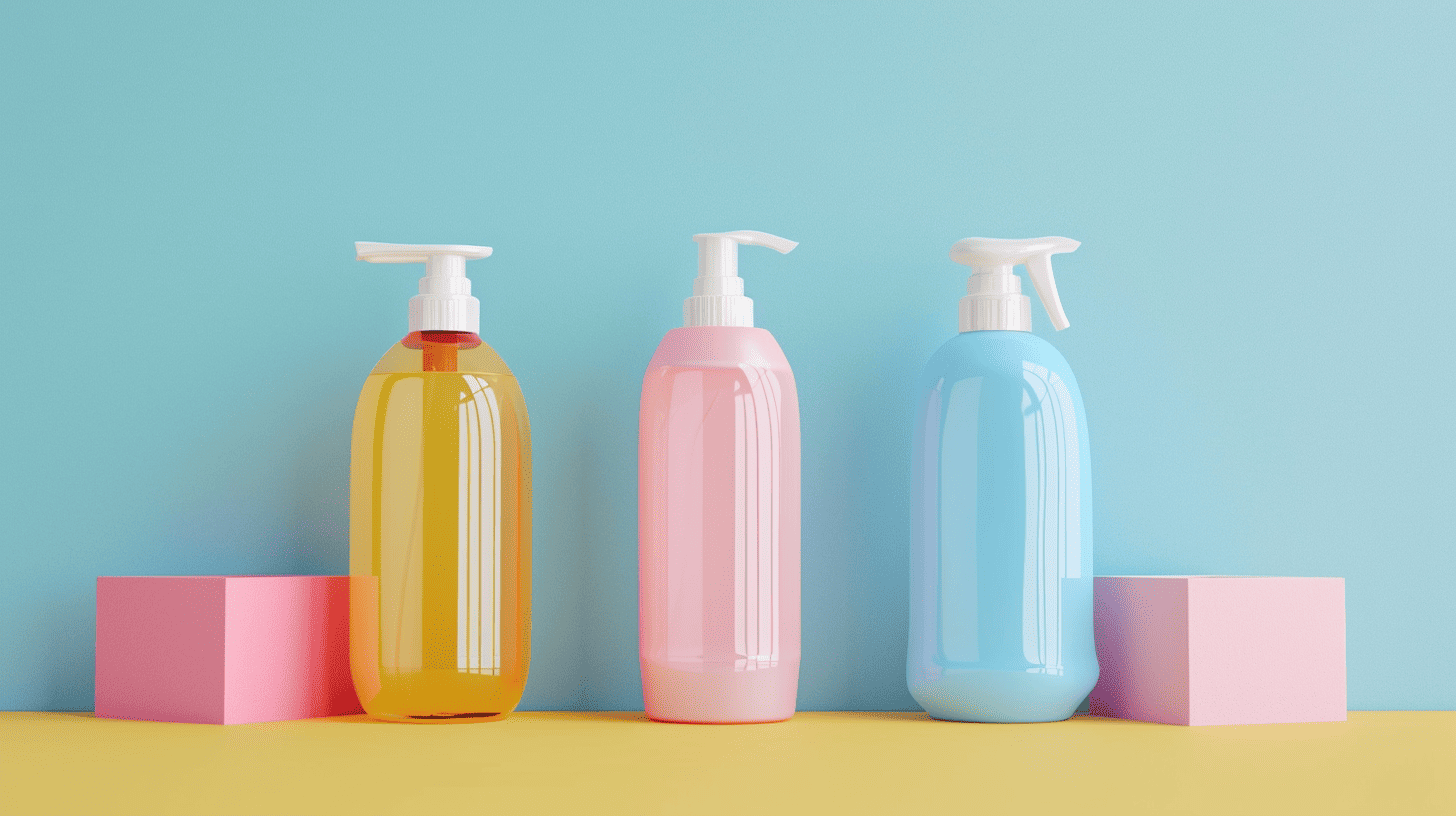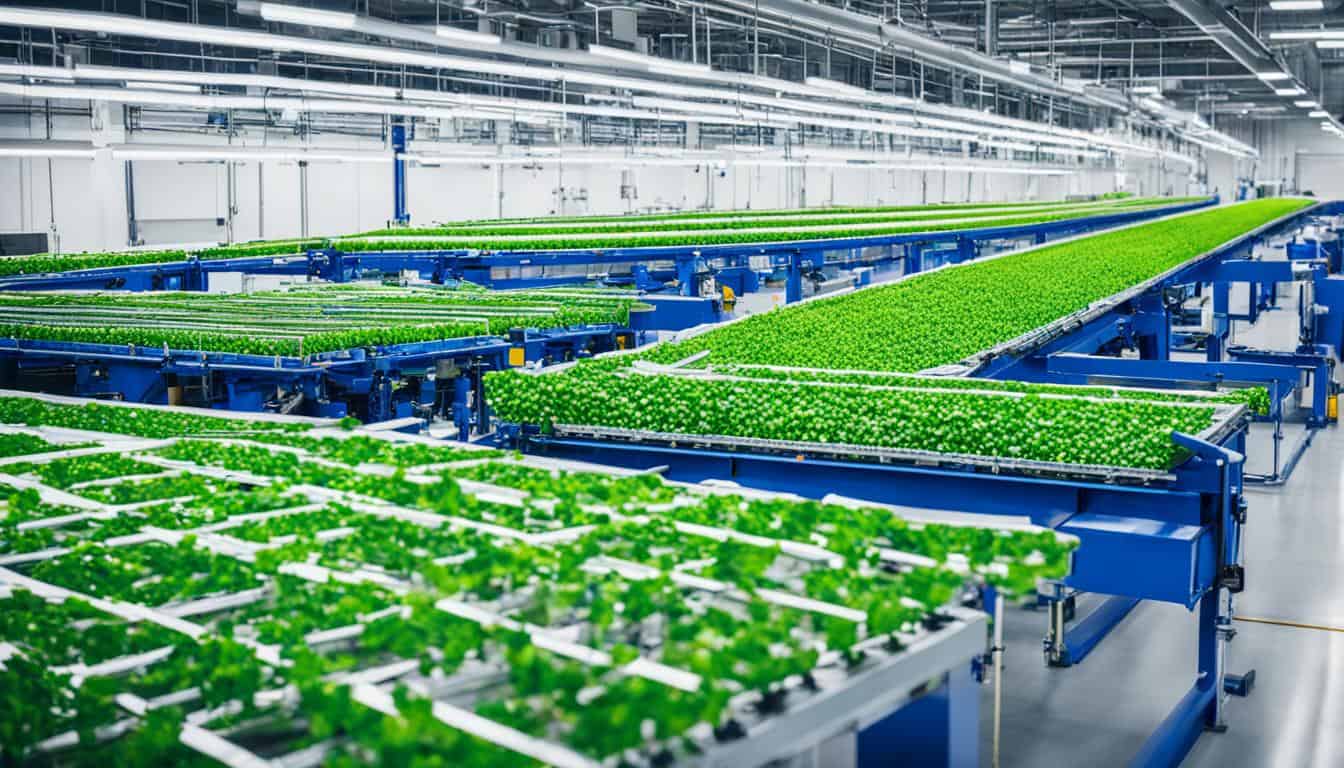When it comes to leading a sustainable lifestyle and embracing zero waste living, the choices we make every day can significantly reduce our environmental impact. By discovering and implementing eco-friendly alternatives for everyday products, we can lessen plastic waste and contribute to a cleaner and greener future for our planet. In this guide, you’ll find 101 incredible waste-free options, including reusable, biodegradable, and compostable products, that will help you minimize your plastic use and make the transition to a more environmentally friendly way of life.
Key Takeaways
- Explore a variety of eco-friendly alternatives to everyday products, making zero waste living a reality.
- Reduce plastic waste and pollution by opting for reusable, biodegradable, and compostable items.
- Implement sustainable swaps, such as refillable water bottles, bamboo toothbrushes, and reusable grocery bags.
- Evaluate your daily habits and consider making small changes that have significant positive implications for the environment.
- Become a more conscious consumer, supporting brands that prioritize environmentally friendly values and practices.
101 Waste-Free Alternatives for Everyday Products
Reusable Products
- Reusable water bottles instead of single-use plastic bottles. Plastic water bottles make up the largest category of plastic waste in landfills.
- Reusable shopping bags instead of single-use plastic or paper bags. Worldwide, up to 5 trillion single-use plastic bags are used each year.
- Reusable food containers instead of single-use plastic containers or plastic wrap.
- Reusable straws made of metal, glass, or bamboo instead of single-use plastic straws. Plastic straws are one of the top 10 plastic items polluting the oceans.
- Reusable coffee cups instead of single-use paper or plastic cups. 500 billion disposable coffee cups are discarded globally each year.
- Reusable cutlery made of metal, wood, or bamboo instead of single-use plastic cutlery.
- Reusable napkins made of cloth instead of paper napkins.
- Reusable food wraps made of beeswax or silicone instead of plastic wrap.
Bulk Buying
- Buy in bulk using your own containers to reduce packaging waste. This also saves money in the long run.
- Shop at bulk food stores and zero-waste grocery stores. Bring your own containers and bags.
Sustainable Materials
- Choose wood, glass, ceramic, stainless steel, or bamboo over plastic for food containers, bottles, cups, and other items. These materials are reusable, recyclable, and sustainable.
Reduce and Reuse
- Repair, mend, or upcycle items instead of throwing them away. Extend the lifecycle of products.
- Borrow, rent items, or buy secondhand instead of always buying new. This reduces waste and saves money.
- Share and exchange items with friends, family, neighbors, and community groups instead of everyone owning rarely used items. This builds community.
Home and Self-Care
- Use bar soaps and shampoo bars instead of bottled body wash and shampoo.
- Use bamboo toothbrushes instead of plastic toothbrushes. Americans throw away over 1 billion toothbrushes per year.
- Make your own cleaners out of simple, natural ingredients instead of buying cleaners in plastic bottles.
- Use reusable cloth pads/menstrual cups instead of disposable pads/tampons. On average a menstruating woman uses 11,000-16,000 disposable pads or tampons in her lifetime.
- Use safety razors with replaceable blades instead of disposable plastic razors.
- Use hankies/handkerchiefs instead of paper tissues.
- Install low-flow faucets and showerheads to reduce water consumption. This saves water and the energy used to heat water.
Laundry
- Use laundry detergent in bar form or package-free instead of bottled detergent.
- Use a drying rack/clothesline instead of the electric or gas clothes dryer. This saves energy and money.
Food and Kitchen
- Grow your own food in a garden, even if just a few herbs in pots. This reduces packaging and food miles.
- Shop at farmers markets and buy local in-season produce. This supports local economies and reduces transport emissions.
- Cook at home instead of eating out. Restaurant meals create more food waste and packaging waste.
- Compost food scraps instead of throwing them in the trash. This reduces methane emissions from landfills and makes valuable fertilizer.
- Bring a reusable container for restaurant leftovers instead of using single-use boxes.
- Make your own baked goods instead of buying packaged baked goods.
- Use reusable cloth produce bags instead of plastic produce bags.
- Use dishcloths instead of paper towels for cleaning.
- Use reusable food storage bags made of silicone or cloth instead of single-use plastic bags.
- Use reusable beeswax wrap instead of plastic wrap to cover food.
- Choose loose tea instead of tea bags which contain plastic.
- Use a French press or percolator instead of disposable coffee pods. K-Cups are not recyclable and contain plastic, foil, and other mixed materials.
- Bring reusable containers and bags when shopping to avoid single-use packaging.
Paper Products
- Use cloth napkins instead of paper napkins, especially for everyday meals at home.
- Use hand towels instead of paper towels for cleaning and drying hands.
- Use reusable cloth unpaper towels instead of paper towels for cleaning. These can be washed and reused.
- Print as little as possible and use both sides of paper when printing. About 75% of printed paper ends up being landfilled or incinerated.
- Use cloth hankies/handkerchiefs instead of facial tissue.
- Use reusable cloth bags instead of paper gift wrap. Or wrap gifts in newspaper, maps, scarves, and other reused items.
- Use online news, e-books, library books instead of newspaper and paper books. If you do read physical books and newspapers, share them with others.
- Send e-cards instead of paper greeting cards. If sending paper cards, reuse cards you have received or make your own.
- Pay bills online instead of using paper bills and checks. Go paperless.
Transportation
- Walk, bike, or take public transport instead of driving. This reduces greenhouse gas emissions and pollution.
- Fly less. Air travel leaves a heavy carbon footprint. One round-trip transatlantic flight creates a warming effect equivalent to 2 or 3 tons of carbon dioxide per person.
- Combine errands into one trip to reduce driving. Trip chain to maximize mileage.
- Maintain proper tire pressure and get regular tune-ups. This improves fuel efficiency by up to 4%.
- Drive an electric or hybrid vehicle instead of a conventional gas vehicle. However, walking, biking, and public transport are better for the environment.
Gardening
- Use compost instead of chemical fertilizers made from fossil fuels.
- Use mulch around plants and trees to reduce watering needs.
- Collect rainwater to use for gardening instead of tap water.
- Pull weeds by hand instead of using chemical weed killers.
- Use natural pest control methods instead of chemical pesticides. Methods include beneficial insects, neem oil, diatomaceous earth, etc.
Cleaning
- Use natural cleaning products like vinegar, baking soda, lemon juice instead of chemical cleaners. Avoid plastic spray bottles by using reusable glass bottles.
- Use reusable microfiber cloths and rags instead of paper towels or disposable wipes for cleaning.
- Use a reusable natural loofah or brush instead of plastic scrubbers.
- Use bars of soap instead of bottled liquid hand soap.
- Use a reusable mop instead of disposable floor wipes or paper towels for spills.
- Air dry laundry instead of using the electric or gas dryer. This saves energy and money.
Personal Care
- Use shampoo and conditioner bars instead of bottled shampoo and conditioner.
- Use a safety razor instead of disposable plastic razors. Razor heads can be composted.
- Use bamboo toothbrushes instead of plastic toothbrushes.
- Use bar soap instead of bottled body wash or shower gel.
- Use reusable cloth feminine pads instead of disposable pads and tampons.
- Use reusable cloth diapers instead of disposable diapers for babies. Disposable diapers take 500 years to decompose.
- Use reusable cloth wipes for babies instead of disposable wipes.
- Use natural deodorant like baking soda instead of antiperspirant in plastic tubes.
- Remove nail polish with natural ingredients like lemon juice instead of remover loaded with chemicals.
Electronics
- Refurbish and repair electronics instead of buying new items. E-waste is growing rapidly worldwide with serious health and pollution impacts.
- Recycle electronics responsibly at certified e-waste recycling centers instead of tossing devices into the regular trash.
- Choose electronics that are repairable, durable and long-lasting instead of items designed to be replaced frequently.
- Buy used electronics instead of brand new items. Markets like eBay and Craigslist offer major discounts.
- Sell or donate unwanted electronics so others can use them instead of trashing items that still work.
- Print less. Read documents on screens instead of printing on paper. If printing, use both sides of paper.
- Unsubscribe from unwanted email lists to reduce inbox clutter. Use email filters to file messages automatically.
Pets
- Use metal food and water bowls instead of plastic bowls that get disposed frequently.
- Buy pet food in recyclable metal tins instead of plastic tubs or pouches.
- Use biodegradable dog waste bags that compost quickly instead of plastic bags that linger for centuries.
- Use reusable pet toys made of rope or rubber instead of plush toys that get tossed regularly.
- Adopt pets instead of buying from breeders or pet stores. Millions of adoptable pets are euthanized in shelters annually.
Kids Toys
- Choose quality toys made from sustainable wood, cotton, wool, metal instead of cheap plastic toys that break quickly.
- Buy used toys secondhand instead of new items wrapped in plastic packaging. Kids outgrow toys so fast.
- Host toy swaps to share toys with others instead of buying new. This builds community and saves money.
- Make your own toys from reused items around the house instead of buying more plastic toys. Get creative.
- Encourage kids to play outside more instead of only with indoor plastic toys. Outdoor play fosters creativity and health.
Holidays and Events
- Use LED string lights instead of disposable string lights for holiday decorating. LEDs last for decades.
- Send e-cards instead of paper cards for holidays, birthdays, etc. If using paper cards, make your own or reuse cards you’ve received.
- Wrap gifts creatively using gift bags, reusable cloth, newspaper, maps, scarves instead of paper gift wrap. Most wrapping paper cannot be recycled due to additives like glitter and dye.
- Decorate with natural items like pinecones, leaves, wood slices instead of plastic disposable decorations.
- Rent items needed for parties instead of buying single-use plastic plates, cups, utensils.
- Make your own decorations out of reused and natural materials instead of store bought. Get the kids involved.
Home Goods
- Seek out furniture made from sustainable wood and materials. Support eco-conscious companies.
- Buy secondhand furniture to give existing items new life instead of purchasing brand new items.
- Use natural cleaning tools like brooms, mops, brushes instead of disposable plastic-based cleaning tools like Swiffers.
- Choose reusable cloth napkins and dish towels instead of paper towels and napkins. Using 1 cloth towel can replace up to 15 rolls of paper towels.
- Use reusable cloth bags for storage instead of single-use plastic bags.
Office Supplies
- Print less. Read documents on screens instead of printing to paper. If printing, use both sides.
- Use refillable pens instead of disposable pens. Americans purchase and dispose of over 1.6 billion ballpoint pens every year.
- Send digital files instead of printing documents to share information with others. Encourage paperless practices.
Embarking on Your Eco-Friendly Journey
Sustainable living starts with the choices we make every day. It’s all about understanding the significance of leaving a minimal environmental footprint. You can begin with simple swaps, such as exchanging disposable plastic bags for reusable shopping totes or trading plastic water bottles for a refillable option. Committing to sustainable practices like opting out of free promotional items, switching to bar soaps, and donating unused items, can significantly reduce waste in everyday life. Whether you’re just starting out or looking to deepen your commitment, there’s no time like the present to integrate more waste-free habits into your lifestyle.
The Importance of Sustainable Living
Sustainable living is not just a trend, but a way of life that has become increasingly important as our planet faces ecological challenges. By adopting sustainable habits and practicing responsible consumption, we can greatly impact the environment and contribute to a healthier, cleaner world.
Starting Small: Easy Swaps to Make Today
Reducing waste and embracing everyday sustainability begins with simple changes. Here are some easy swaps you can make today to start your eco-friendly journey:
- Replace disposable plastic bags with reusable shopping totes.
- Upgrade from disposable water bottles to a refillable, stainless steel or glass option.
- Switch from plastic utensils to reusable bamboo or stainless steel alternatives.
- Use cloth napkins instead of disposable paper towels.
- Swap single-use coffee cups for a reusable, insulated mug.
Plastic Free July and Beyond: Committing to Change
Participating in initiatives such as Plastic Free July is an excellent way to raise awareness about the global plastic pollution problem and encourage people to reduce their plastic use. However, it’s important to maintain these sustainable habits throughout the year. By continuously seeking out waste-free alternatives and fostering environmentally friendly lifestyle choices, we can make a lasting impact and become champions for a greener future.
Unpacking the Benefits of Bamboo Products
When it comes to choosing eco-friendly alternatives to plastic, bamboo products undoubtedly stand out as sustainable heroes. As a rapidly renewable resource, bamboo contributes to a healthier environment by producing more oxygen and absorbing carbon dioxide. In addition to being a biodegradable, sustainable material, bamboo offers a diverse range of environmentally friendly products that easily replace their plastic counterparts.
One of the most popular bamboo products is the bamboo toothbrush. As an eco-friendly alternative to plastic toothbrushes, it offers the same benefits while reducing plastic waste. With a natural material that is both biodegradable and compostable, we can incorporate bamboo toothbrushes into our daily routines and join the larger movement towards greener, cleaner living.
Another excellent product made from bamboo is bamboo cutlery. This eco-friendly alternative to plastic cutlery provides a reusable and biodegradable solution for anyone looking to reduce their environmental impact. Next time you host a picnic, party, or simply need on-the-go utensils, consider swapping out disposable plastic flatware for a more sustainable option.
Bamboo also lends itself well as a material for coffee cups. A bamboo coffee cup lets you enjoy your favorite hot and cold beverages without contributing to the wasteful single-use plastic or paper cup problem. These reusable and eco-friendly coffee cups make it easier for coffee lovers to practice sustainable habits every day.
By adopting bamboo products into our everyday lives, we actively support the fight against plastic pollution. To further solidify our commitment, consider the following list of popular bamboo products:
- Bamboo dish brushes
- Bamboo washcloths
- Bamboo straws
- Bamboo storage containers
- Bamboo phone cases
Switching out conventional plastic items for bamboo alternatives has never been easier or more beneficial. It’s time to embrace a brighter, greener future together and make a positive impact on our planet through our consumer choices.
The Magic of Reusables: Coffee Cups, Water Bottles, and Straws
Embracing reusable products is a significant step in the right direction for anyone pursuing an eco-friendly lifestyle. Reusable coffee cups, water bottles, and straws help to combat the overwhelming amount of single-use plastic waste that ends up in our landfills and oceans.
Why Reusable Coffee Cups are a Must-Have
Switching to a reusable coffee cup not only reduces disposable cup waste but also enhances your coffee drinking experience. Insulated coffee mugs made of stainless steel or bamboo keep your favorite beverages at the perfect temperature while promoting sustainable coffee habits. Ditching single-use cups and adopting a reusable option allows for plastic-free living and sends a positive message to your community about sustainable choices.
The Last Water Bottle You’ll Ever Need
Owning a robust reusable water bottle is crucial for everyday sustainability. A sturdy bottle made from stainless steel or glass offers a stylish and practical solution to hydrate on the go without contributing to plastic pollution. Whether you choose a compact size or a large capacity bottle, you’re making a positive impact on the environment while encouraging others to follow suit.
Saying Goodbye to Single-Use Straws for Good
Single-use plastic straws have become an environmental nightmare, harming wildlife and polluting our oceans. Reusable straws crafted from materials like stainless steel and silicone offer a durable and eco-friendly alternative for sipping cool drinks without feeling guilty. Make the switch and ensure you always have a reusable straw on hand to say no to disposable options and embrace a greener lifestyle.
| Product | Materials | Benefits |
|---|---|---|
| Reusable Coffee Cup | Stainless Steel, Bamboo | Minimize disposable cup waste, maintain beverage temperature |
| Reusable Water Bottle | Stainless Steel, Glass | Reduce plastic pollution, promote water consumption |
| Reusable Straws | Stainless Steel, Silicone | Eliminate single-use straws, protect marine life |
Choosing reusable coffee cups, water bottles, and straws is an essential step in leading an eco-friendly lifestyle that reduces our reliance on single-use plastics. Make these small yet impactful changes in your daily habits, and watch as they collectively make a significant difference in promoting a cleaner, greener future for our planet.
Organic Cotton Essentials: From the Kitchen to the Bathroom
Embracing organic cotton is a step towards a waste-free lifestyle. Whether it’s choosing GOTS certified cotton sponges for kitchen cleaning or using cotton bread bags to keep your loaves fresher for longer without plastic, organic cotton products offer a reliable and compostable alternative. In the bathroom, cotton makeup remover pads can be soft on the skin and kind to the environment, effortlessly integrating into your zero waste beauty routine.
- Kitchen sponge: The GOTS certified cotton kitchen sponge not only helps me save the environment, but also gets the job done without leaving any microplastics behind. Free of harsh chemicals and synthetic materials, eco-friendly products like this provide a sustainable alternative to traditional cleaning products.
- Bread bag: I’ve found it incredibly effective to swap out plastic bread bags for cotton ones, which not only reduce plastic waste but also keep my bread fresh and appetizing. Cotton bags are reusable and completely compostable, making them a zero waste home essential.
- Environmentally friendly materials: Organic, GOTS certified cotton is free from harsh chemicals and pesticides. This ensures the production process has a lighter impact on the environment, contributing to a more sustainable lifestyle.
Adopting organic cotton essentials in our daily routines can significantly impact our ecological footprint and overall commitment to sustainable living. By making environmentally conscious choices, we can contribute to a greener future and be proud of the zero-waste home essentials we’ve integrated into our lives.
Tackling Personal Care: Eco-Friendly Hygiene Products
Adopting eco-friendly hygiene products has never been more important than now, as our planet faces numerous environmental challenges. By incorporating plastic-free, biodegradable, and sustainable grooming items into our routines, we can reduce waste, save valuable resources, and feel good about doing our part for the environment. From biodegradable toothbrushes to natural deodorants and safety razors, beneath are a few game-changing personal care items that can help to build a zero-waste bathroom.
Biodegradable Toothbrushes and Floss
When it comes to achieving eco-friendly oral care, replace your old plastic toothbrush with a biodegradable toothbrush made from bamboo or other natural materials. Unlike their plastic counterparts, these brushes have minimal environmental impact at the end of their life cycle because they break down naturally. Similarly, opt for biodegradable floss made from sustainable, vegan-friendly materials, such as silk or cornstarch, to complete your compostable oral care routine.
Natural Deodorants that Actually Work
Conventional deodorants often contain harmful chemicals and come packaged in single-use plastic containers, making natural deodorant an obvious choice for anyone seeking eco-friendly hygiene products. The good news is there are many effective, vegan-friendly deodorant options on the market that are made with plant-based ingredients and either use no packaging or rely on recyclable or biodegradable containers.
The Sustainable Shave: Safety Razors and More
Shaving can be a source of significant plastic waste, so why not make the environmentally friendly choice and switch to a safety razor? These razors have a long-lasting, stainless steel design that helps minimize waste by simply replacing the blade when needed. Add in a shaving cream bar or sustainably-packaged shave gel, and your grooming session can become a model of sustainability.
In conclusion, an affluent array of eco-friendly hygiene products exists that aid individuals in achieving their zero-waste goals. By committing to using biodegradable toothbrushes, natural deodorants, safety razors, and other sustainable grooming items, we can reduce our environmental impact and play our part in safeguarding the planet for future generations.
Kitchen Swaps: Cookware and Cleaning Alternatives
Transforming your kitchen into a zero-waste haven starts with conscious decisions and eco-friendly swaps. By investing in sustainable cookware, natural cleaning solutions, and composting methods, you can reduce your environmental impact while maintaining the function and aesthetics of your kitchen space.

Guilt-Free Cooking with Eco-Friendly Cookware
Farewell to harmful non-stick pans; it’s time to embrace eco-friendly cookware for your culinary adventures. Sustainable cooking options include cast iron, stainless steel, and ceramic cookware that are made from natural materials and free from toxic coatings. Designed with durability in mind, these kitchen essentials can withstand daily use while reducing your environmental footprint.
Natural Cleaning Solutions: Scrubs, Sponges, and Soaps
Eliminate plastic waste by opting for plant-based scrubbers and biodegradable sponges to maintain a spotless kitchen. Materials such as coconut fiber, bamboo, and cellulose provide effective cleaning options without compromising your commitment to sustainability. Complement these cleaning tools with eco-friendly soaps made from natural ingredients to achieve a gleaming kitchen, guilt-free.
Composting: From Food Waste to Garden Gold
Composting is an impactful method that addresses food waste while benefiting your garden. By collecting organic waste in a designated compost bin, you create nutrient-rich soil to nourish your plants and contribute to a healthy ecosystem. Adopting composting practices can significantly reduce the amount of waste sent to landfills and enables you to play an active role in resource conservation.
To recap, greening your kitchen is achievable with thoughtful choices and simple swaps. By using sustainable cookware, natural cleaning solutions, and embracing composting, you can create a functional, environmentally responsible hub for delicious, nourishing meals.
Small Yet Significant: Miscellaneous Waste-Free Products
It’s the small items throughout our everyday life that can make a big difference. As individuals striving for a sustainable lifestyle, we should consider eco-friendly options for often overlooked products like pot scrubbers, dish brushes, and make-up remover pads—all with sustainable or biodegradable materials. By opting for miscellaneous waste-free items, we contribute to the bigger picture of reducing our overall environmental footprint, embracing a lifestyle where every choice is made with the planet in mind.
Waste reduction can be as simple as using a reusable silicone food storage bag instead of disposable plastic bags or switching to plant-based cleaning products for your home. If you’re looking to extend your eco-conscious choices beyond single-use items, explore the world of second-hand markets, where gently used items can be given new life, diverting them from landfills. If we can consistently make these small, eco-friendly choices, the gradual impact will be immense in promoting waste-free living.
Remember, every waste reduction effort counts – no matter how small!
Of course, let’s not forget the incredible potential of multipurpose products, which can further reduce waste and simplify eco-friendly living. For example, consider a versatile, organic cotton produce bag for shopping and storage or a stainless steel food container that doubles as a reusable lunchbox and freezer-safe dish.
- Utilize reusable shopping bags instead of single-use plastic bags.
- Opt for a bamboo toothbrush over a plastic one.
- Choose compostable cleaning supplies like wooden dish brushes and biodegradable sponges.
- Swap out disposable plastic containers for reusable glass or stainless-steel alternatives.
- Support the second-hand market by buying and selling gently used items.
Together, we can create meaningful change through our everyday choices, embracing a zero-waste lifestyle that benefits not only ourselves but also future generations. Every reusable, compostable, or plant-based product helps pave the way towards a brighter, more sustainable future.
Sustainable Fashion Choices: The Impact of Eco-Friendly Apparel
As we embrace a more sustainable lifestyle, it’s essential not to forget the role of fashion in our eco-friendly journey. Sustainable fashion goes beyond just reducing waste; it empowers communities and promotes a responsible industry that prioritizes both people and the planet. By choosing clothing and footwear made from sustainable fabrics, accessories crafted with natural materials, and supporting fair-trade and local artisans, we can make a positive impact on the world.

Choosing Sustainable Fabrics and Footwear
As a conscious consumer, we must consider our wardrobe choices carefully. Opting for sustainable fabrics like organic cotton, linen, and tencel plays a significant role in reducing the environmental impact of the fashion industry. When it comes to footwear, choosing brands that prioritize eco-friendly materials and practices can help us make a positive change. By carefully selecting our clothing and footwear, we demonstrate our commitment to the environment and spread awareness about sustainable alternatives.
Making a Statement with Eco-Friendly Accessories
Eco-friendly accessories are an excellent way to express our style while upholding our values. From handcrafted jewelry using sustainable and recycled materials to vegan bags and purses, the options are endless. Embracing accessories made from environmentally friendly materials allows us to complete our look, knowing that we have made choices that align with our values and contribute to a better world.
Ethical Shopping: Supporting Fair Trade and Local Artisans
One of the most powerful ways to support sustainable fashion is by embracing ethical shopping practices. Prioritizing fair-trade products and supporting local artisans ensures that we contribute to a system that values workers’ rights and fair wages. Through our purchases, we have the power to encourage a more just and sustainable fashion industry.
Together, we can redefine fashion as a force for good, building a wardrobe that reflects not only our style but also our commitment to the environment and the people who create our clothes.
Conclusion on Waste-Free Alternatives for Everyday Products
Eco-friendly alternatives are essential for long-term sustainability, and the journey toward zero waste can start with simple steps that yield powerful results. When we consciously choose waste-free products, we contribute to a global movement advocating for waste reduction and environmental stewardship.
Implementing Long-Term Sustainable Practices
It is our responsibility to stay committed to sustainable practices and make informed decisions that protect our planet. This includes incorporating reusable products such as water bottles, stainless steel straws, and cloth shopping bags, as well as organic and biodegradable options for personal care and home use.
Joining the Global Movement Towards Waste Reduction
Being part of the zero waste community fosters a sense of unity, connecting us with like-minded people dedicated to reducing environmental impact. Let’s leverage this collective power and join forces to make the world a greener place for generations to come.
Further Resources for Your Sustainable Lifestyle
In our pursuit of a waste-free lifestyle, we must seek out valuable resources and consistently educate ourselves about best practices. By sharing our knowledge and experiences, we can inspire others to join this eco-friendly journey and embrace environmental stewardship. Together, we can make a difference and create a healthier, happier planet.
FAQ on Eco-Friendly Alternatives
Q: What are some common everyday essentials that can be replaced with eco-friendly alternatives?
A: Items such as plastic bottles, paper towels, and single-use plastic bags can be replaced with eco-friendly alternatives to reduce the amount of plastic in your life.
Q: How can I reduce my use of plastic products in everyday life?
A: You can reduce your use of plastic products by using reusable water bottles, reusable straws, and reusable cloth instead of plastic items like paper towels.
Q: What are some natural material alternatives to common plastic products?
A: Some natural material alternatives to common plastic products include items like reusable sandwich wraps made from natural fibers and bamboo toothbrushes instead of plastic ones.
Q: Are there any alternatives to plastic packaging for household items?
A: Yes, you can find plastic alternatives for household items that come in plastic packaging, such as using reusable cloth bags for shopping and avoiding plastic packaging for care products.
Q: How can I make my cleaning routine more eco-friendly and reduce the use of plastic products?
A: You can make your cleaning routine more eco-friendly by using eco-friendly cleaning products instead of those wrapped in plastic, and by using alternatives to common paper products for cleaning.
Q: What are some great alternative options to plastic products for everyday use?
A: There are great alternative options to plastic products for everyday use, such as using reusable sandwich wraps, eco-friendly household items, and vegan-friendly alternatives to common plastic products.
Q: How can I work towards zero waste and avoid the use of single-use plastic items?
A: You can work towards zero waste by reducing the use of single-use plastic items and opting for reusable alternatives instead of disposable plastic products.
Q: What are some eco-friendly alternatives to plastic bags that are used for shopping?
A: Eco-friendly alternatives to plastic bags include using reusable cloth bags for shopping and reducing the use of plastic bags in everyday essentials.
Q: Are there any alternatives to plastic fibers in clothing and household items?
A: Yes, there are alternatives to plastic fibers in clothing and household items, such as opting for items like reusable cloth and reducing the use of plastic fibers in everyday essentials.
Q: How can I find plastic alternatives for everyday items and reduce plastic in my life?
A: You can find plastic alternatives for everyday items by exploring the ultimate list of eco-friendly alternatives and reducing the use of plastic in your everyday essentials.





Leave a Reply